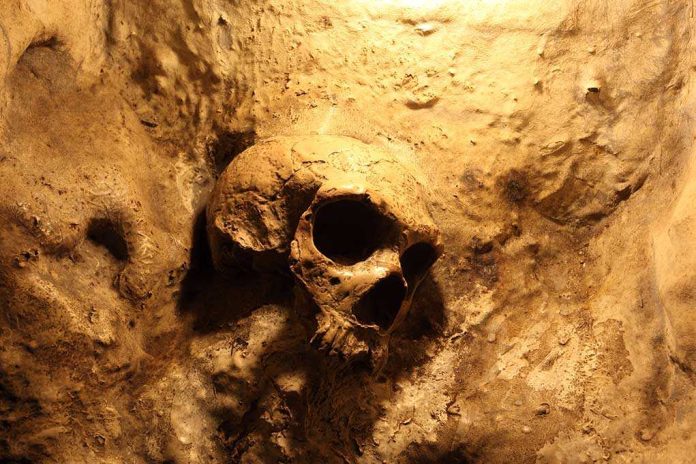
A mother’s shocking discovery at a museum ignites a firestorm of ethical questions and legal battles.
Story Highlights
- A mother claims her missing son’s body is on display in a museum exhibit.
- Allegations of unethical sourcing practices in the body exhibition industry arise.
- Public outrage and legal action ensue, prompting investigations.
- Industry faces increased scrutiny and potential regulatory changes.
Mother’s Disturbing Discovery Raises Ethical Concerns
Kim Erick, a grieving mother from the U.S., recently claimed to have discovered her missing son’s body on display in a public museum exhibit. Her horrifying realization came when she recognized what she believed to be her son’s preserved remains, despite being previously informed that he had died by suicide.
This shocking revelation has brought to light potential unethical practices in the body exhibition industry, sparking public outcry.
The museum in question has denied any wrongdoing, asserting that all bodies on display are ethically sourced from verified donors. However, Erick’s accusation challenges these claims, suggesting a possible cover-up. The legal and ethical implications are profound, as questions arise about the transparency of sourcing human bodies for such exhibits.
Legal and Public Backlash Against the Exhibition Industry
In response to Erick’s claims, legal proceedings have commenced, and the museum is experiencing declining ticket sales amid public backlash. The controversy has prompted multiple venues to cancel upcoming exhibitions, reflecting the growing unease over the ethical issues involved.
A Georgia senator has even called for a federal investigation, while the Atlanta district attorney reviews the case, indicating the severity of the situation.
Public opinion remains polarized, with social media amplifying the debate. Some argue these exhibits serve educational purposes, while others see them as exploitative. The revelations have also led to other families stepping forward, suspecting their relatives’ bodies may have been used without consent.
Potential Industry Reforms on the Horizon
This incident has the potential to catalyze significant changes in the body exhibition industry. With ongoing investigations and heightened scrutiny, there could be increased legal and regulatory oversight regarding the sourcing of anatomical specimens. The controversy underscores the need for transparency and ethical standards to protect the dignity of human remains.
As the legal battles unfold and investigations continue, the case serves as a stark reminder of the emotional and ethical stakes involved. It also highlights the importance of respecting the rights and dignity of individuals, even after death, a principle that resonates deeply with conservative values and the broader public concerned with ethics and consent.
Sources:
LADbible Article on Kim Erick’s Claims














